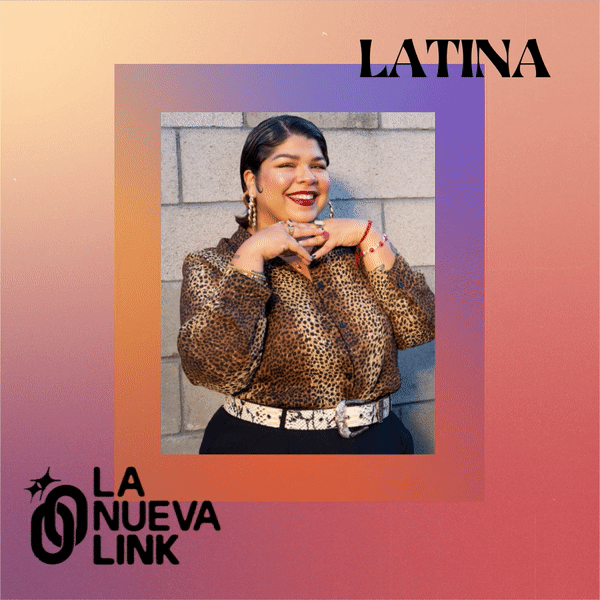Name: Doris Anahi Muñoz (she/her)
Age: 27
Homebase: Los Angeles (Tongva Land)
Tu país: Born in the US to immigrants from Mexico
Describe your professional role(s):
I am the founder of Casa Mija — formerly known as mija mgmt — a home for music industry mentorship with more to come. I am also the founder of Solidarity for Sanctuary, a non-profit aimed to amplify the voices of immigrant communities through music, advocacy, and the arts.
What’s been your journey to your current profession?
I grew up in a family of musicians, specifically worship leaders. Music has always been spiritual [for me] and at the core of who I am. Yet, I never thought I could make a true profession out of it until I started booking shows for my university. This [experience] opened the floodgates of interning all over the music industry: from artist management to working at major record labels like RCA and Columbia, and even to event production with School Night.
My experience working for a Miguel secret show led me to realize I could be Latina and make it in the music industry. This role led [me to embark] on my first entrepreneurial endeavor: mija mgmt launched in early 2017. Around the same time, I began Solidarity for Sanctuary as a call to action to raise money to help protect my parents from deportation. [This project] grew to help more families, individuals, and organizations. SFS will always be my life’s project.
Then 2020 came around. Like many, the pandemic brought the necessary perspective as to what [fulfills me]. I took a leap [of faith]. I transitioned from artist management to music industry mentorship.
Last year, I was offered a fellowship in civic media with the Annenberg Innovation Lab at USC. This opportunity fostered the necessary tools and support system to pivot in my career. I know I’m [within] my larger purpose as long as I live at the intersection of creating, curating, and community building within the arts.
What excites and stimulates you in your career? What draws you into the work you do?
Seeing the new generation of creatives and future executives ushering into the scene keeps me excited and stimulated. This movement can only continue if we lift each other in the process. [We can] support new music and fill new positions in companies with the right folks (this is why I started the mentorship program). My work will always be rooted in the why, which is for my family. I wouldn’t be here today if it weren’t for their sacrifice to immigrate to this country, the music my brothers and parents raised me on, and all the love and support they have given me on this journey of seeing my wildest dreams come true.
What advice would you tell your younger self as she embarks on her professional career?
It feels like everything I do as of late is speaking to coming-of-age Doris. Teenage and college-age Doris thought she had to assimilate to make her way in the music industry. I felt invisible when I was running around as an intern. I realized there were so many of us who felt the same when I launched my own company. I wish I [had] learned earlier to honor my roots and stand firm in who I am. [I’m] a direct reflection of where I come.
What’s your go-to music genre, playlist, or song(s)?
I feel like a señora sometimes porque I stay listening to boleros y rancheras most of the time, but of course I’m also a huge fan of the new Latinx indie scene. My current rotation oscillates between legends like Juan Gabriel, Los Panchos, and Linda Ronstadt. I also listen to up and comers like Maye, Divino Niño, and Ambar Lucid.
What does Latine culture mean to you on your home turf?
There is an inter-generational impact taking place in Los Angeles. Immigrant families hustle their way to survival. Kids of immigrants are paving a new path in the world of arts and culture. [For example], I think of my friend Anita Herrera who reps Los Angeles harder than anyone I know. Sacred Rose Mercado, her recent work at Human Resources, directly reflects how our generation created culture from Los Angeles to the Inland Empire. From honoring being raised at the swapmeet to vintage shirts with scenes from lowrider communities, to reimagining religious jewelry, y más. Latine culture will continue to evolve generation after generation. I think we’re lucky to live in this specific moment of time of creatives.
What’s next for you?
During the pandemic and the Annenburg fellowship, I reconnected with recording the music I’ve been writing and keeping close to my heart for years. The first single [I recorded] was made with love by my community of close friends and even someone I consider a mentor in my life, a legend, Camilo Lara (composer for Coco, Y Tu Mama Tambien, Narcos, Lila Downs, etc.). The song will be out next month. The way life has been aligning for me, as of late, led to this moment where it feels like it’s finally the right time, turning the years of fear into fuel for this new chapter.
Featured image by Vero Lechuga
##
For Las Mujeres Doin’ the Work, Latina has partnered with La Nueva Link, a digital and IRL community for Latinx creatives and media professionals in every intersection of the culture. LNL’s mission is to shift the understanding of US Latinxs from a monolith to micro-communities. They are a network fostering visibility and facilitating connections for Latinx professionals and creatives. Not only does their work empower a new generation of culture-makers, but also LNL pushes institutions to think critically about how they engage with Latinx communities.
Follow La Nueva Link @lanuevalink and sign up to join at lanuevalink.com









